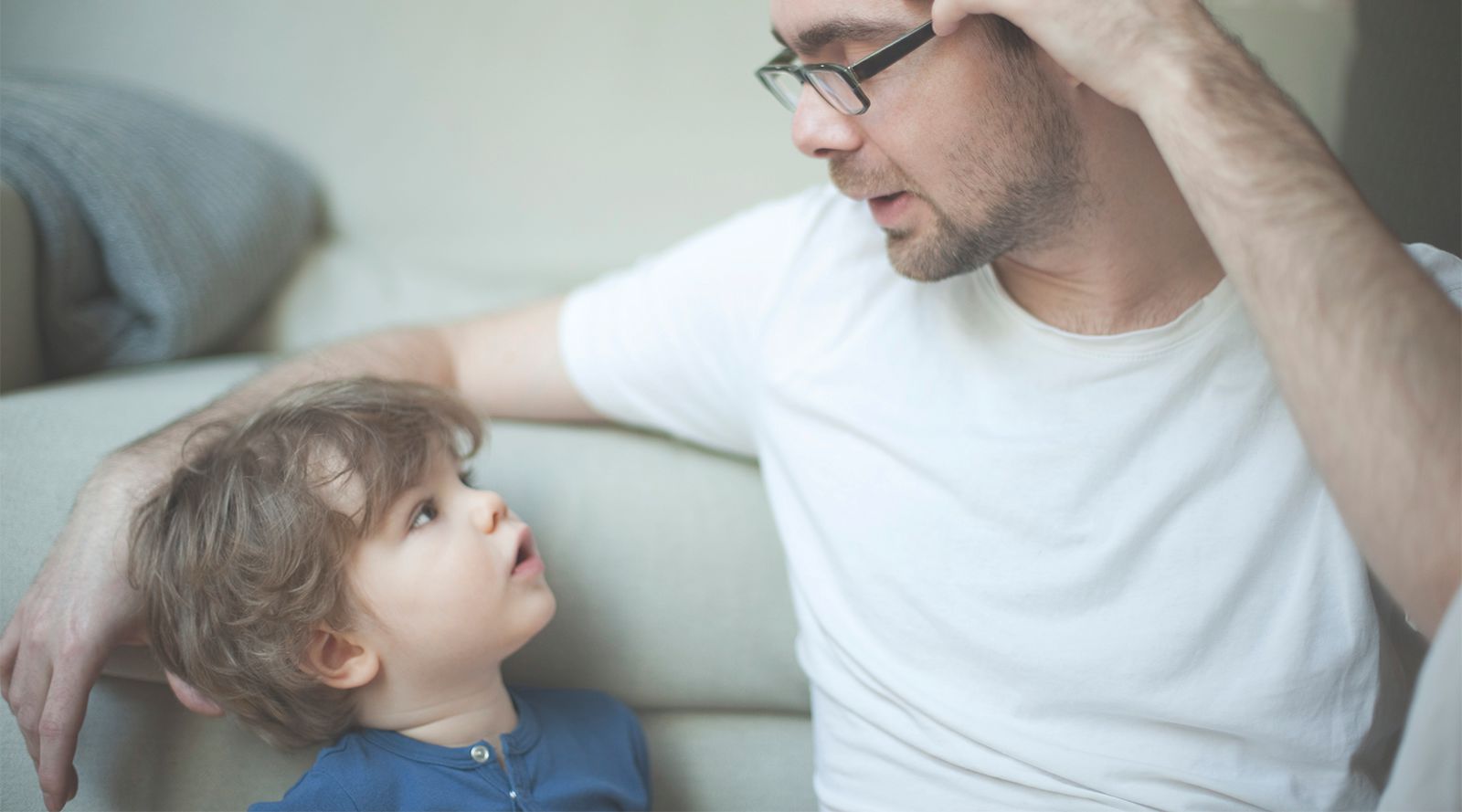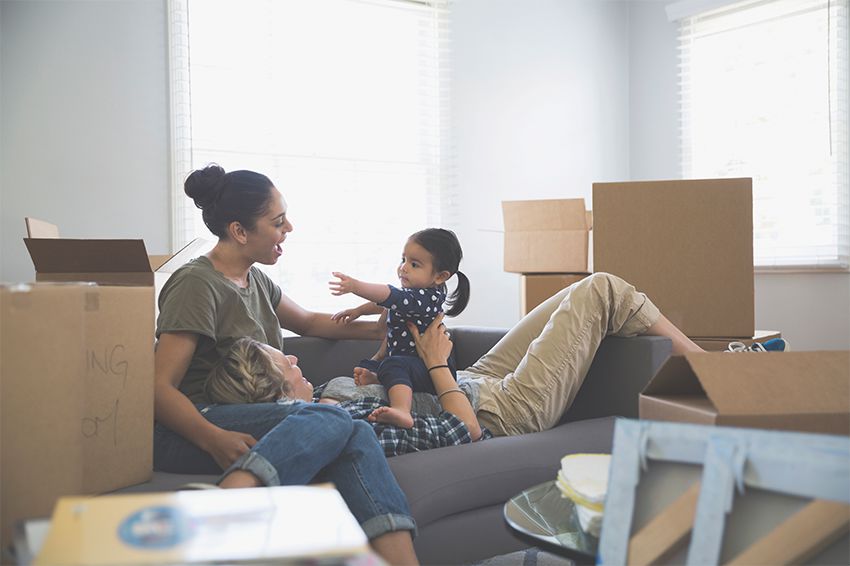At a glance
Babies learn language by copying, so chat away as much as you can
Read and sing to your toddler to help them observe and develop their skills
Repeat the sounds they make and encourage them to repeat what you say
Build their confidence. Praise any successes and avoid focussing on mistakes, cute though these may be
From baby talk to big person talk
From the moment they’re born, baby is communicating with you. At first it’s mostly through crying but each cry means something. Even if you become fluent in this (loud) language, baby will be moving onto real words in no time. From six months there might be cute babbling and pointing, and by baby’s first birthday they might be able to say simple words like ‘dog’ or ‘dada’ or even ‘cake’. Your baby’s vocabulary will keep growing. They may have 20 words by 18 months, and by three years they could be talking in whole sentences. And the first time they say ‘I love you’, your heart will melt.
Don’t forget, every tiny talker is different and they won’t all have the same repertoire of words or hit the same milestones at the same time.
Here’s a few words of wisdom for your baby’s speech development:
You talk. They talk
Talk to your baby. A lot. It sounds obvious, but they learn from copying you. The more you talk, the more they will. Even from birth they’re absorbing it all. Give eye-to-eye contact, be expressive, and make it fun. Even from a young age, before they can talk back, try describing to them what is happening at that moment. Think of your lives as a story and you’re the narrator. With routine, certain words will become easy to pick up, like ‘up’ everytime you lift them from the cot. Or ‘more?’ when you’re in the weaning stage. It might be worth turning off loud TV shows or background music so your would-be talker can hear you better. If you’re concerned about your baby or toddler’s speech development speak to your GP or health visitor.
Singing is talking with music
Don’t be shy, sing to baby, they’re listening. Nursery rhymes, with their repetition and rhythm of words, have been an easy, fun way to help with toddler’s speech development since the year dot. Perhaps there’s a baby and toddler playgroup in your area where you can practise your singing?
Listen. Praise. Imitate. Elaborate
Tune in to baby. They may be trying to tell you something. Those first half-words can come as early as six months. If they say ‘Dada’ for dad praise them with clapping or smiling. Repeat the word clearly and properly. ‘Yes. Daddy’, and then elaborate…’Sleepy Daddy’. Or ‘Doh’ for Dog. You could say ‘Yes! Dog. Big dog’. All this praise will make them feel good about learning.
Make reading part of your routine
Storytime is a great way to get little ones into the habit of reading. Of course, you’re not trying to teach your child to read right now. But if you say the words out loud and point to the images, you will help baby make the connections.
Learning in an everyday way
You don’t need to set aside a special ‘baby teaching’ time, you can still teach them while you’re getting on with everyday life. Point at things when you’re shopping and name them. Like an apple, some water… and so on. Explain what you’re doing as you shop: ‘Mummy is putting the apple in the bag.’ Repeat the words you want them to learn, slowly and clearly, like ‘apple’ and ‘mummy’ or ‘orange’ and ‘daddy’, the possibilities are nearly endless.
Baby sign language
Many parents and carers find baby sign language is a good way to communicate with them before they learn to use words. Research suggests it can actually help their speech once they start to talk and will give them a ready-made visual vocabulary that they just need to put words to. Babies are already waving, clapping and pointing from an early age, so it’s just a case of extending this natural form of communication.
Get down to their level
Get down to baby’s level and make eye contact while you talk. Your soon-to-be chatterbox will learn how to pronounce words and make new sounds by watching the movement of your lips. Repeat the sounds they make and encourage them to mimic you. Give choices, ‘Would you like a banana or an apple?’ If your toddler says ‘nana’, say ‘yes! Banana’ without focusing on the error.
Building up your bilingual baby
The best way to help a child with a bilingual upbringing is to keep things natural. If you prefer to speak English, speak English. But if you or your partner have another mother-tongue, go with that if it feels right. Your baby will be surprisingly adept at understanding the differences and will eventually learn who speaks and understands which language – so you won’t need a translator (all the time). Having more than one language is great for your child’s future and will help them develop linguistically in English too. If you’re thinking about raising your child bilingually, it’s probably best to start as you mean to go on, especially since their little sponge-like brains will soak up everything at this age.
Delayed speech
If your child isn’t talking at all by the age of two, or you notice speech problems in older toddlers, it is recommended you see a healthcare professional. A skilled therapist may suggest speech therapy for toddlers if they find them struggling to understand words and form sentences, or failing to make themselves understood when speaking. Healthcare professionals can check if your child has speech delay – it’s not entirely uncommon, even Einstein didn’t start talking until he was three.
In very rare cases they may be a developmental reason, such as Specific Language Impairment, but it can be treated by a recommended speech therapist.









